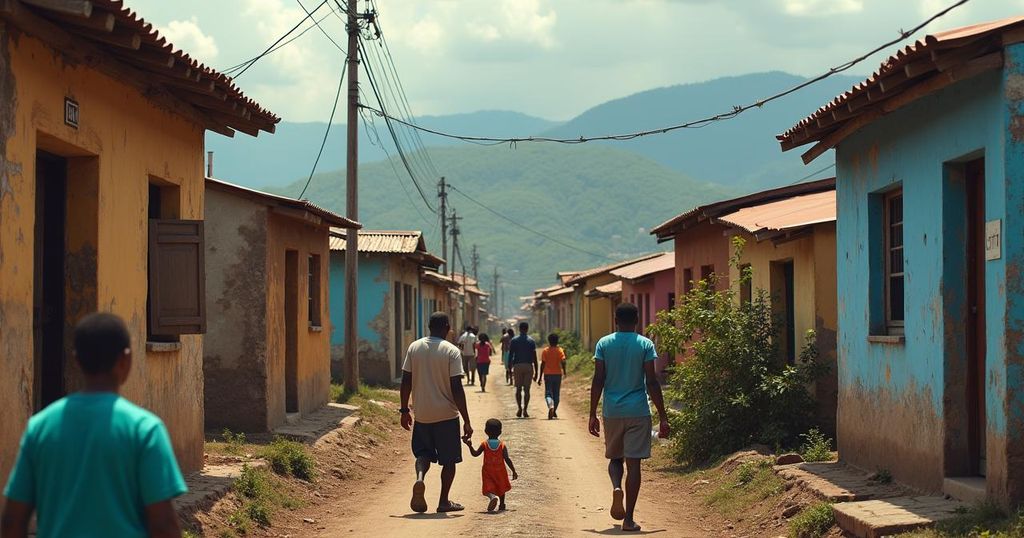Haitian migration has become a significant political topic in U.S. elections, following claims from politicians regarding the socioeconomic impacts on communities. The Biden administration’s recent decisions regarding immigrant paroles and Temporary Protected Status have stirred debate as the number of Haitian migrants surge, primarily affecting Florida and New York. Concerns about the repatriation of migrants are juxtaposed with the ongoing human rights crisis in Haiti, complicating the policy landscape ahead of the elections.
The surge of Haitian migrants into the United States has emerged as a critical political issue, particularly in the lead-up to the 2024 elections. Former President Donald Trump and Senator J.D. Vance have drawn attention to this phenomenon, claiming it is significantly affecting communities such as Springfield, Ohio. This political discourse has intensified in light of the Biden administration’s implementation of parole procedures for migrants from Cuba, Haiti, Nicaragua, and Venezuela, allowing them to enter the U.S. under certain conditions, including a two-year temporary work permit. Amid these developments, the recent announcement by the Biden administration signifies that it will not renew the current parole periods for these groups, forcing them to seek alternative immigration statuses or depart the country. The situation escalated when former President Trump made controversial statements regarding the behavior of migrants in Springfield, Ohio, alleging absurdities that have been denied by local officials. In contrast, Senator Vance expressed his perspective that mortgage arrivals under the current parole programs are not legal immigrants, labeling them as “illegal aliens.” Current statistics reveal that there are approximately 1.15 million Haitian immigrants residing in the U.S., marking a substantial increase from the previous year. The largest populations are concentrated in Florida and New York, with Broward and Miami-Dade counties being the most significant hubs for these migrants. The Biden administration’s actions included the expansion of the CHNV program for Haitians in early 2023, resulting in over 214,000 individuals entering the country. Despite these efforts, the decision not to extend parole raises concerns about the potential repercussions for Haitian migrants facing possible deportation. In parallel, Temporary Protected Status (TPS) has been redesigned and extended, shielding nationals in precarious situations from being sent back to unsafe environments. The ongoing humanitarian crisis in Haiti, characterized by conflict, environmental disasters, and extreme lack of resources, underscores the necessity for migratory protections and the complexities surrounding immigration policy discussions. The revocation of parole status has led to fears among conservatives that it will not result in the intended expulsion of migrants once their status lapses.
Haitian migration to the United States has been an ongoing issue, particularly due to the extensive socioeconomic challenges faced in Haiti, including ongoing violence, natural disasters, and poor access to basic needs. The recent influx has been propelled by temporary protective measures enacted by the Biden administration, which offer short-term relief for migrants. The political climate surrounding immigration has intensified as the U.S. approaches the 2024 elections, with prominent political figures sharply critiquing these policies and their implications on local communities.
The relentless flow of Haitian migrants into the United States has become a polarizing issue ahead of the upcoming elections, primarily fueled by political rhetoric from former President Trump and Senator Vance. The implications of immigration policies implemented by the Biden administration continue to generate debate regarding their legality and impact on U.S. communities. Amid these discussions, the plight of Haitian nationals remains dire, underscoring the need for a comprehensive and humane approach to immigration reform.
Original Source: www.foxnews.com






